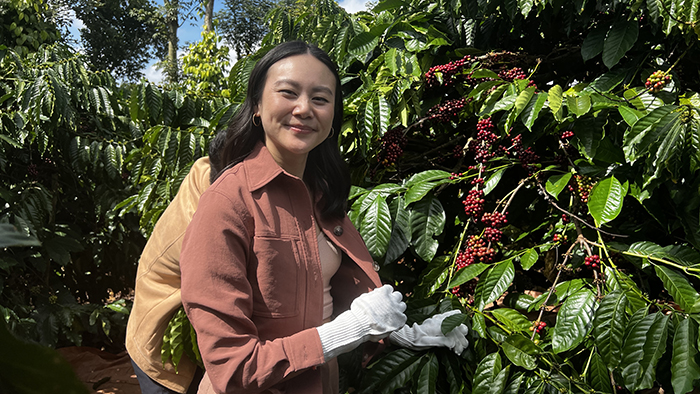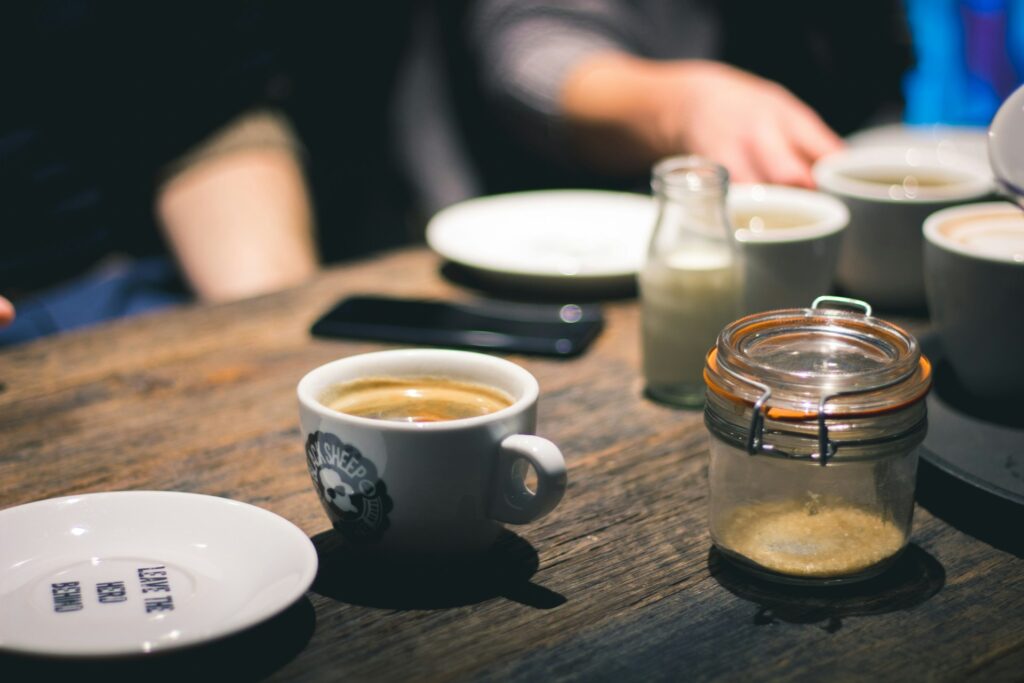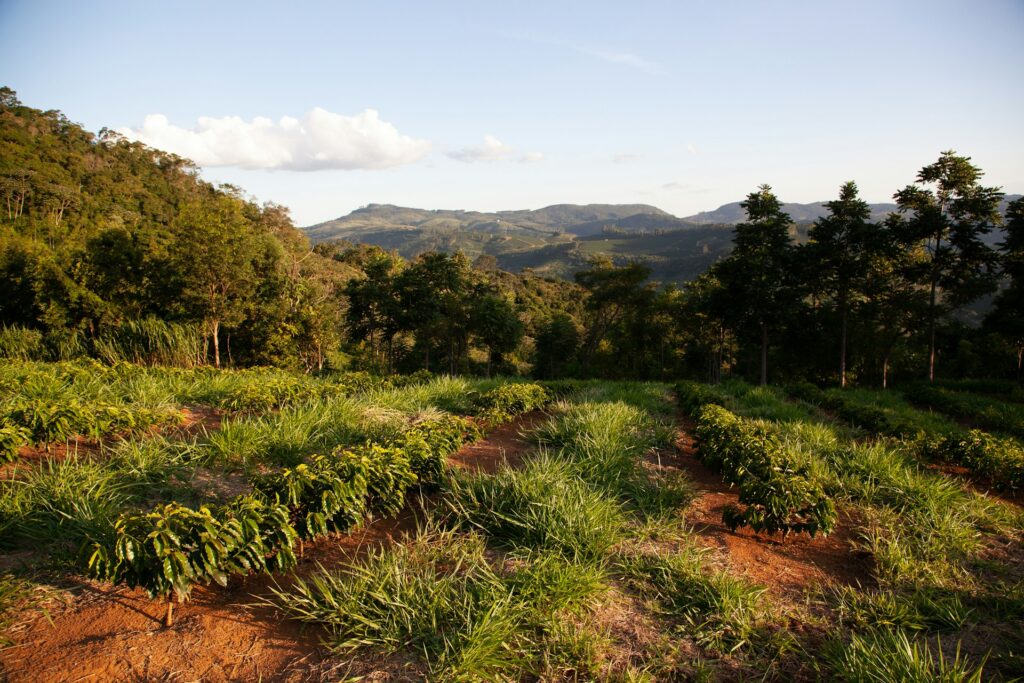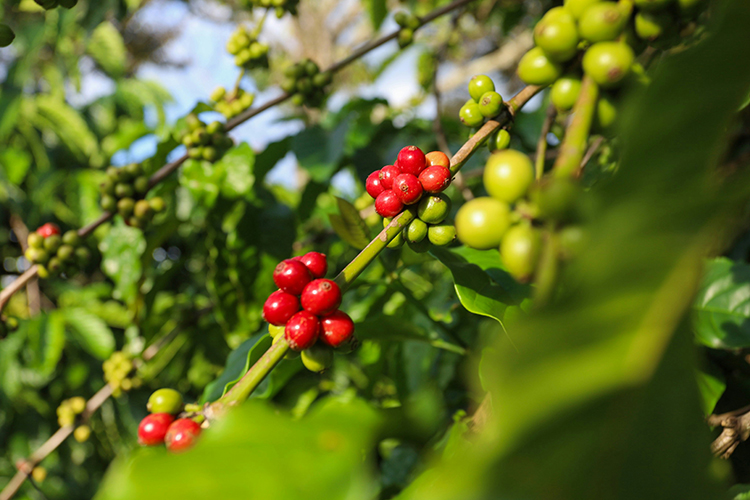For decades, the idea that the Arabica species of coffee is superior in flavor and quality to Robusta has been held as a fundamental truth. Arabica is prized for its sweet, delicate flavors. Robusta is seen as its more utilitarian cousin — a plant that can produce large quantities of coffee, even under less-than-ideal conditions, but at the expense of taste.
But all of that is starting to change. Renewed interest in the species — spurred on in part by environmental concerns — has called into question long-held assumptions about Robusta and its place in the industry.
Global Production of Robusta Coffee Is Increasing
To be clear, Arabica is still the dominant species — by a longshot. According to data in a U.S. International Trade Commission paper entitled “Is Robusta on the Rise? Trends in Coffee Species Trade,” Arabica accounts for 60-70% of all coffee production around the world. But that market share may be slipping.
That same report shows an upward trend in recent years in Robusta production without an equivalent rise for Arabica. It says, “while production of Arabica remained mostly steady, production of Robusta increased 4.3 percent” from 2017 to 2022.
This may not sound particularly noteworthy, but in raw figures, this represents an increase of three million 60-kilogram bags per year — roughly 396 million pounds of green coffee beans.
More Countries Are Growing Robusta
Production of Robusta has traditionally been dominated by a small handful of countries. Vietnam, Brazil, Indonesia, Uganda, and India account for over 90 percent of global Robusta production. But that is starting to change.
In recent years, countries like Mexico, Nicaragua, Guatemala, and Colombia that have primarily produced Arabica in the past are starting to look more into Robusta production.
Some of this shift is undoubtedly due to necessity, as climate change has put a strain on growing the far-more-temperamental Arabica. But it also reflects a changing market that is more receptive to Robusta and provides an expanding opportunity for producers.
Some Companies Are Looking To Rebrand Robusta
Industry norms have, until now, relegated Robusta to the role of cheap coffee. Its primary association is with instant coffee, but it’s also a central component in inexpensive mass-market coffees found in stores. When specialty roasters do use it, it’s typically hidden in blends — often as a way to cut pricier Arabica beans and, as a result, costs.
But over the last decade, several companies have started to make the case that Robusta is something that should be celebrated, rather than covered up.
Nguyen Coffee Is Changing Perceptions About Vietnamese Coffee
Sahra Nguyen is one of Robusta’s biggest and most visible champions. Her company Nguyen Coffee Supply made a splash soon after opening in 2018 out of her Brooklyn apartment. The former activist filmmaker has spoken and written at length about her perspective on Robusta and Vietnamese coffee in general, both of which she has said she feels have an unfair reputation in the coffee industry.
“I felt like there was a deep injustice happening in the coffee industry globally, where segments of the coffee community were completely rendered invisible,” Nguyen told Joy Sauce in 2023. “Robusta as a coffee species was super invisible in the U.S. market, but even worse, it was explicitly frowned upon.”

The parallels between how the coffee world views Robusta and how it views Vietnamese coffee aren’t difficult to see. Vietnam isn’t a country even enthusiasts tend to think of when talking about global coffee leaders. However, it is the world’s second-leading producer of coffee. It’s also the leader in Robusta production.
Nguyen bet on her conviction that there is simply more to Vietnamese coffee and Robusta than people had given it credit for. And it appears she has hit on that bet. Just six years after founding Nguyen Coffee Supply, the company’s beans and canned drinks have become a fixture at supermarkets around the country. Nguyen told us that she’s seen a noticeable shift in industry perceptions of Robusta and the attention it gets since she first opened.
“We’ve definitely reached a tipping point,” said Nguyen. “I’d say I started feeling it maybe two or three years ago — I think it was 2021. I spoke at the SCA (Specialty Coffee Association) in Boston. That was really early, but I think every year since then there’s been like Robusta programming at SCA.”
If Nguyen’s company is an experiment to see how the American market would respond to Vietnamese Robusta grown and roasted with pride and care, calling the results “promising” would be an understatement.
Black Sheep Wants To Make Robusta Cool
If Nguyen is waging war against Robusta’s reputation in the coffee industry, British coffee chain Black Sheep Coffee is leaning into it. Founded in 2013, Black Sheep has made Robusta a central part of its identity, serving up what it claims was the world’s first 100% specialty-grade Robusta in its shops. The company’s name itself is a nod to the species — the “black sheep” of the coffee industry.
Like Nguyen Coffee Supply, Black Sheep has thrived by going against mainstream industry perceptions. In the summer of 2024, the company announced the opening of its 100th location in Abu Dhabi. While the vast majority of Black Sheep shops are located in the United Kingdom, the company now has outlets in Paris, France and Plano, Texas in addition to its shops in the UAE.

As any coffee professional knows, there is a lot more to what makes or breaks a coffee company than just the products it offers. So while it’s not fair to say that both Nguyen Coffee Supply and Black Sheep have succeeded because of their Robusta advocacy, it’s abundantly clear that putting the species at the forefront of their mission has not held them back. If nothing else, their success could make the idea of Robusta more palatable to farmers, companies, and investors.
Robusta Has Some Serious Advantages Over Arabica
Even if one were to reject the idea that Robusta can find a seat at the specialty coffee cupping table, there are still plenty of reasons why shift could be a good thing. Recent studies into the species have made clear a few noteworthy benefits of the bean.
Robusta Could Help Address Coffee’s Looming Climate Crisis
We’ll touch more on this issue in-depth in future content, but suffice it to say that coffee has a climate problem. The notoriously-fickle plant has a growing range that’s limited to 25° north of the equator and 30° south of it. Thanks to global climate change, that window may be shrinking even further.
That’s bad news for coffee growers who may have to adapt to changes in precipitation, soil conditions, and of course, temperatures. But while climate change affects every single living organism on earth, recent studies have shown that Robusta could be far more resistant to changing growing conditions than its cousin.

In the 2024 paper “Robust and smart: Inference on phenotypic plasticity of Coffea canephora reveals adaptation to alternative environments,” the authors examine how robusta’s properties could make it ideally-suited as a substitute for Arabica should climate change trends continue.
The paper points to Robusta’s superior “plasticity” — or, the ability to adapt to different growing environments — as a key feature. Researchers demonstrate that Robusta can grow at higher temperatures than Arabica without as significant a loss of yield. They also show that Robusta also fares better under drought conditions.
But importantly, the paper points out that this superior resiliency doesn’t necessarily have to come at the cost of quality. It suggests that Robusta’s reputation as a cheap, low-grade coffee may have more to do with its preparation methods and the “aggressive marketing” of Arabica coffee. The authors note that some of their Robusta samples exceeded 80 points according to CQI protocols — placing it squarely in specialty range.
Robusta May Be Less Vulnerable To Disease
While diseases have always been a factor in coffee production, the issue has gotten more attention in recent years, especially coffee rust. In 2021, the National Center for Investigations of Coffee (Cenicafe) — Colombia’s coffee federation — publicly urged coffee producers to plant more resilient strains after discovering nine new varieties of Hemileia vastatrix, the scientific name of the coffee rust fungus.
After the first significant outbreak of the fungus in South America 1983, it began to spread to other countries and continents. Over the last 40 years, it has become a global threat. According to a 2023 paper published in Plant Health Cases title, “Coffee Leaf Rust: Wreaking Havoc in Coffee Production Areas Across the Tropics,” coffee rust has caused a 49.5% drop in production and income in Uganda, just one of the many countries dependent on coffee as an export crop.
But while coffee rust wreaks havoc on Arabica crops, Robusta appears to be much more resistant. One 2023 study of cloned Robusta plants showed evidence that the species is “relatively tolerant to the leaf rust disease.”
Robusta Rising
This is entirely anecdotal, but many of the conversations I’ve been privy to around adopting Robusta have felt like they’ve had a theme of something we’ll have to do, but not something we’ll enjoy doing. That’s undoubtedly due in part to the prevailing idea that Arabica is simply better.
But I would also argue that maybe we’ve done Robusta a disservice by focusing on the environmental and production chain benefits it offers. It feels natural to see things that are good for us as inherently less enjoyable. It’s also not a huge leap in logic to assume that, if Robusta offers all these benefits, there must be some reason why we still drink Arabica.
The renewed interest in Robusta in recent years has provided academic studies that support both the “eat your vegetables” benefits of the species, but also its ability to produce a really good cup of coffee. Nguyen Coffee Supply and Black Sheep Coffee are two strong case studies into how the coffee-drinking public may receive better Robusta — with strong results in support.
Nguyen says that it’s not just small niche corners of the industry talking about Robusta anymore.
“It’s really exciting to see everyone kind of embrace this conversation,” she said.
We are in the earliest stages of approaching Robusta with the same care and consideration that we’ve given Arabica up to this point. As coffee people continue to try new growing methods, test out new environments and learn more about the species, we will undoubtedly also run into new obstacles. But the idea of a future coffee industry in which Robusta helps the industry become more resilient and more sustainable without sacrificing flavor and quality is one that is showing promise — and one worth being excited about.



